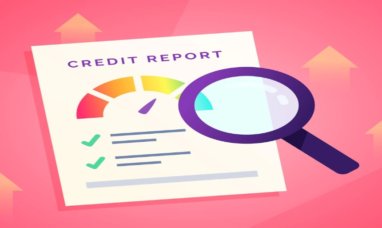A financial setback, like a job loss or divorce, can lead to missed payments and accounts in collections. As a result, a derogatory remark on your credit could occur.
In this post, we’ll cover what a derogatory credit item is, how long it can stay on your credit, and how to rebuild your score.
What is a Derogatory Mark?
A derogatory mark is a negative, long-lasting indication on your credit report. It generally means that you failed to pay back a loan.
If you have one or more derogatory marks on your credit report, lenders may be reluctant to approve you for credit. And if you do get approved, you might get less-than-ideal credit terms. So, how many points is a derogatory mark? Even a single negative item on your credit could cost you over 100 points.
Derogatory marks typically stay on credit reports for up to 7 or 10 years, and can lower your credit scores. Their impact on your credit scores will usually decrease over time.
Types of Derogatory Marks
Let’s explore the different derogatory credit items and how long they typically stay on your credit report.
1. Missed Payments
If you’re at least 30 days late on your payments, this can result in a derogatory mark on your credit score.
Derogatory marks from missed payments generally stay on your credit reports 7 and ½ years from the date a creditor reports your payment as late.
Often, the severity of a missed payment may increase every 30 days if you don’t pay it.
2. Account Charge-Offs
After several missed payments, a creditor may assume that you won’t pay what you owe. In this case, the creditor will write or “charge off” the account for tax purposes.
Derogatory marks from charge-offs can stay on your credit report for 7 years from the first date of your delinquent payment.
3. Repossession
If you fail to make payments on your car, the lender can repossess it. A repossession often stays on credit reports for 7 years.
4. Collections
If you’re late on several payments, a lender may choose to turn your account over to a collection agency. The collection agency will then try to collect the payment from you.
Unfortunately, making a payment won’t remove collections action from your credit profile. This means that you’ll likely have to wait until the account “falls off” your credit report–which won’t be until about 7 years later.
5. Student Loan Default
When you default on your student loans, it means that you’re not paying back your debt as you agreed to.
The specific effects and timing of student loan default depend on whether the loan is federal or private.
For example, for federal student loans, default begins after missing a payment for 270 days. In either case, your late student loan payments, and the default itself, will typically stay on your credit for 7 years.
6. Bankruptcy
To avoid certain consequences (i.e. repossession, foreclosure, etc.) from missed payments, you can file for bankruptcy. Bankruptcy is a legal proceeding in which you can request relief from debt payments.
There are 2 main types of bankruptcy for individuals:
-
-
-
- Chapter 7: Allows you to get rid of your unsecured debts such as your credit card balances and medical bills. Essentially, you’re selling off all your assets to clear your debt.
- Chapter 13: Allows people with consistent income to pay back their debt using a debt repayment plan. By paying all of their lenders, the borrower can keep all of their property.
-
-
A Chapter 13 bankruptcy can stay on your credit report for up to 7 years, while a Chapter 7 can remain on your report for 10 years.
7. Foreclosure
Foreclosures result from late mortgage payments. The amount of time it takes to file for foreclosure depends on the lender.
Generally, a foreclosure stays on your credit for 7 years after the filing date. Under the FHA derogatory credit guidelines, foreclosure can affect your ability to apply for a mortgage in the future.
Ways to Improve Your Credit Score After a Derogatory Mark
Unfortunately, it may take a while for a derogatory mark to “fall off” your credit report. However, there are steps you can take to offset the negative items on your report.
The key is to learn how to view derogatory marks on credit and add positive information. You can do this in the following ways:
-
-
- Checking your credit reports: If you want to know how to find out derogatory marks on credit, check your credit reports. Doing so can also help you spot errors such as incorrect credit card balances or tradelines that aren’t yours.
-
-
-
- Using credit responsibly: If you have a credit card, avoid spending over 30% of your credit limit. Credit card utilization can have a major impact on your credit score. In fact, it has the second-largest impact.
-
-
-
- Making payments on time: Payments have the greatest impact on your credit score. So, be sure to make payments on time, every time.
-
-
-
- Disputing credit report errors: Around 20% of consumers have an error on at least one credit report. With each credit bureau, dispute any errors that you notice. By law, they have to investigate disputes related to tradelines within 30 days of the filing date.
- Waiting for the mark to fall off your credit: As a last resort, if any of the above tips fail to improve your score, you can wait for the negative items to fall off your report.
-
A derogatory mark on your credit can be quite alarming. Unfortunately, it can be difficult to avoid.
The good news is derogatory marks will have less influence on your score over time. Plus, there are steps you can take to minimize their effect and build your overall financial health.
Featured Image:








